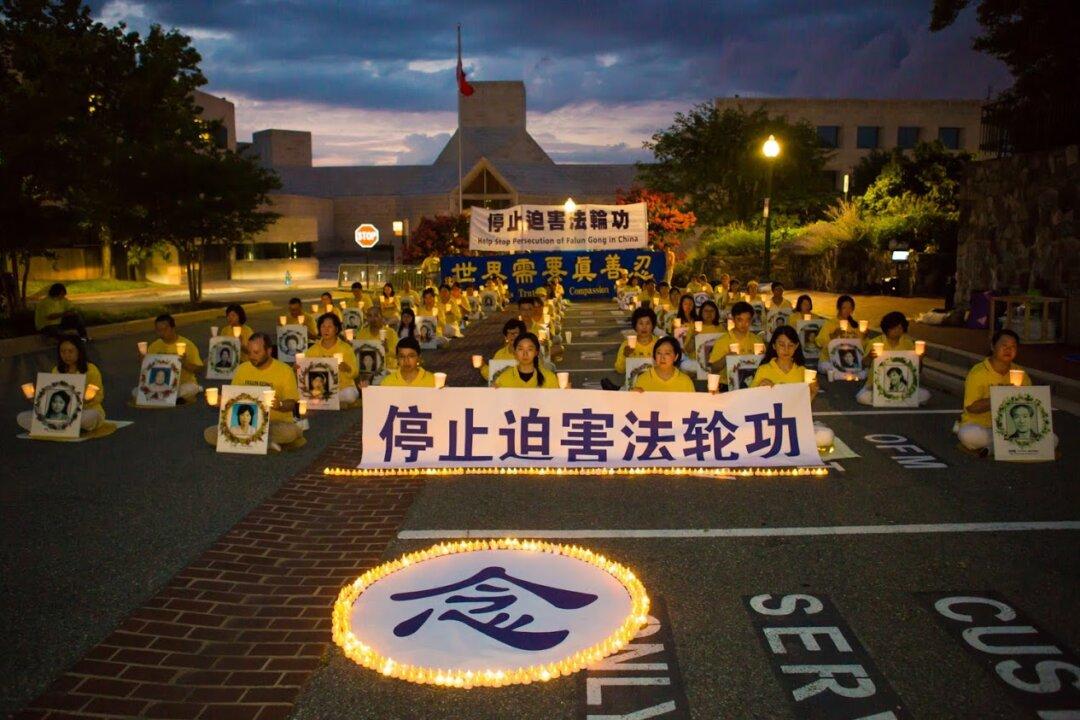[youtube]x7FdjzQufRw[/youtube]
An independent TV station broadcasting uncensored news into Asia, including mainland China, via a Taiwan-controlled satellite has since early April faced the prospect of going off the air on Aug. 9. A bipartisan coalition of Taiwan legislators has urged keeping the station on the air and a U.S. congressman has sketched the outlines of a possible deal. So far their efforts have not borne fruit.
Chunghwa Telecom (CHT) formally notified New Tang Dynasty Asia Pacific (NTD AP) on April 12 that it would not renew NTD AP’s satellite contract, citing insufficient bandwidth as the reason for no longer carrying the station.
CHT says its circumstances have changed due to the scheduled deployment of a new satellite, ST-2, which takes the place of its ST-1 satellite from which NTD AP currently broadcasts. CHT has claimed that the ST-2 has less bandwidth available than the ST-1 and so it is forced to deny service to some current customers.
NTD AP has suggested that the problem is not a lack of bandwidth, but a lack of desire on the part of CHT to resist entreaties from the Chinese Communist Party (CCP) regime. CHT has recently signed business deals on the mainland.
The CCP has sought to shut down NTD AP’s broadcasts since they began in 2003. NTD AP provides millions inside mainland China with uncensored news that is otherwise not available, including reports on human rights abuses and Party corruption and misdeeds.
The Taiwan government appoints a majority of CHT’s directors, making the government ultimately responsible for how this dispute is resolved.
Taiwan’s legislators sided with NTD AP in a budget resolution passed out of committee on June 1.
The resolution notes that ST-2 is the only satellite controlled by the Taiwanese government and says the decision of whether to lease space on it to NTD AP raises fundamental constitutional issues.
The resolution begins by quoting a decision by Taiwan’s Judicial Yuan, the Constitutional Court, “Freedom of speech is the very foundation of a constitutional democracy. Radio and television broadcasts are important media through which people may express their thoughts and opinions, thereby allowing public opinion to be expressed.”
The resolution then says that on the basis of the Judicial Yuan’s decision, “Government’s safeguarding the expressions of independent media is upholding the core values of freedom of speech and freedom of press protected by the Constitution of a democratic society.”
After reviewing the details of the NTD AP-CHT controversy, the resolution concludes, “We ask the Ministry of Transportation and Communications to urge CHT to continue to sign the contract providing the ST-2 satellite service with NTD APTV.”
The resolution is signed by several individual legislators, the caucus of the opposition Democratic Progressive Party (DPP) and the speaker of the Legislative Yuan—the head of Taiwan’s legislative branch—Mr. Wang Jin-pyng.
CHT has offered to resolve the dispute by leasing space on a satellite operated by another company and making that available to NTD AP in lieu of space on ST-2.
NTD AP has rejected this offer, saying that its broadcasts will only be protected from interference by the Chinese regime if they issue from the Taiwan-controlled ST-2.
Speaker Wang agrees with NTD AP. He told Sound of Hope radio, “If this decision [putting NTD AP on ST-2] isn’t made, I’m afraid—even though the Ministry of Communications would make its arrangements … at some point, [CHT] would break the contract.”
Read More...the concern that political influence explains refusal to renew the station’s contract.
The head of the DPP, Ms. Tsai Ing-wen, has raised the concern that political influence explains CHT’s refusal to renew the station’s contract.
She told The Epoch Times on June 10, “We cannot rule out the possibility of political factors, because Chunghwa Telecom has no justifiable reason for this decision.”
Congressman Dana Rohrabacher (R-Calif.) has sketched the outlines of a deal that would satisfy the concerns of both CHT and NTD AP.
In his second letter on this issue to Taiwan’s President Ma Ying-jeou, dated June 2, Rohrabacher wrote, “The close link between CHT and the Taiwan government gives CHT the strength to resist Beijing’s demands. NTD should thus be served from the ST-2 satellite, with other CHT customers who are not targets of Beijing’s censorship efforts moving to other satellites as CHT sublet clients.
“Such an arrangement would protect NTD’s freedom without losing any business to CHT. I have been informed that CHT is willing to make an effort to find another satellite that can implement such a win-win solution.”
Almost two weeks have passed since the budget resolution passed out of committee in the Legislative Yuan and so far no deal has been announced. NTD AP is concerned that CHT is not bargaining in good faith.
Ms. Theresa Chu, spokesperson for NTD AP, pointed it out that CHT did not inform NTD AP beforehand of its intention not to renew the contract. “If CHT knew all along that it needed to shrink its market presence with the launch of ST-2, why didn’t it tell existing customers well in advance? Why did it wait until NTD AP approached CHT with a request for renewal?”
Ms. Chu also points out that CHT has refused to provide a key piece of evidence for its claims—the details of bandwidth usage on ST-1 and ST-2.
While the usage is kept a secret by CHT, the bandwidth capacity of the two satellites is known. According to publicly available sources, the ST-1 has bandwidth of 120 MHz and ST-2 has bandwidth of 180 MHz. NTD AP says it requires 4 MHz, or 2.2 percent of the ST-2 bandwidth.
If NTD AP is going to continue to broadcast, something needs to be worked out in the next few weeks. While NTD AP’s contract with CHT expires on Aug. 9, Taiwan’s National Communications Commission requires notification one month in advance of a broadcaster switching satellites, which means the effective date for CHT to agree to put NTD AP on ST-2 is July 9.




